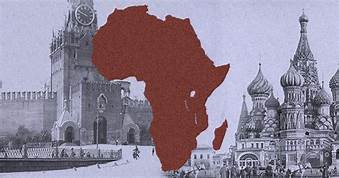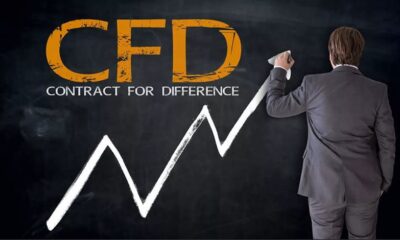Global Issues
Uneven Distribution of Scarce Resources in Africa: A Looming Threat to the Continent -By Aisha Ali Abubakar
Addressing the issue of unevenly distributed scarce resources in Africa requires concerted efforts on multiple fronts. Initiatives focusing on good governance, transparency, and accountable leadership are crucial in combating corruption and ensuring equitable resource allocation. Investing in infrastructure development that connects remote areas to urban centers can help bridge the gap.

Africa, a land of vibrant cultures, diverse landscapes, and rich resources, has long grappled with the challenge of unevenly distributed scarce resources, posing a significant threat to the continent’s stability and development. Despite its vast wealth in natural resources, including minerals, fertile land, and a burgeoning youthful population, Africa continues to face acute disparities in resource allocation, hindering its progress on multiple fronts.
A paradox often observed in Africa is the coexistence of immense resource wealth in certain regions juxtaposed with pervasive poverty and underdevelopment in others. The continent hosts an abundance of natural resources, from oil in Nigeria to diamonds in Botswana, yet the benefits of these riches often fail to reach the broader population due to systemic issues like corruption, mismanagement, and skewed economic policies.
The uneven distribution of resources in Africa has far-reaching consequences on socioeconomic development. Access to basic necessities like clean water, healthcare, education, and infrastructure remains a challenge for millions. Rural communities are particularly affected, lacking adequate infrastructure and basic services, while urban centers witness disproportionate growth leading to overcrowding and strained resources.
Resource scarcity and competition have been catalysts for conflicts across the continent. From conflicts over control of valuable minerals like coltan in the Democratic Republic of Congo to water disputes between countries, uneven resource distribution often fuels tensions, exacerbates existing conflicts, and impedes peace-building efforts.
Healthcare and education are critical components of human development. However, the uneven allocation of resources leads to disparities in access. Remote regions suffer from inadequate healthcare facilities, leading to higher mortality rates from preventable diseases. Education systems are also affected, with rural areas having fewer schools and limited access to quality education compared to urban counterparts.
The exploitation of resources in certain areas without proper regulation contributes to environmental degradation. Deforestation, pollution, and land degradation resulting from mining activities not only affect the local ecosystems but also impact the livelihoods of communities relying on these resources for sustenance.
Addressing the issue of unevenly distributed scarce resources in Africa requires concerted efforts on multiple fronts. Initiatives focusing on good governance, transparency, and accountable leadership are crucial in combating corruption and ensuring equitable resource allocation. Investing in infrastructure development that connects remote areas to urban centers can help bridge the gap.
Moreover, fostering regional cooperation and diplomacy to manage shared resources effectively is imperative. Implementing sustainable resource management practices and promoting inclusive economic policies that benefit all strata of society are pivotal in mitigating disparities.
The unequal distribution of scarce resources in Africa stands as a significant impediment to the continent’s growth and stability. It not only perpetuates poverty and inequality but also fuels conflicts and hampers overall development. Addressing this challenge demands collaborative efforts from governments, international organizations, and local communities to ensure fair and sustainable resource allocation, ultimately paving the way for a more prosperous and equitable future for the continent and its people.
Aisha Ali Abubakar from Mass Communication Department Borno State University, Maiduguri.










